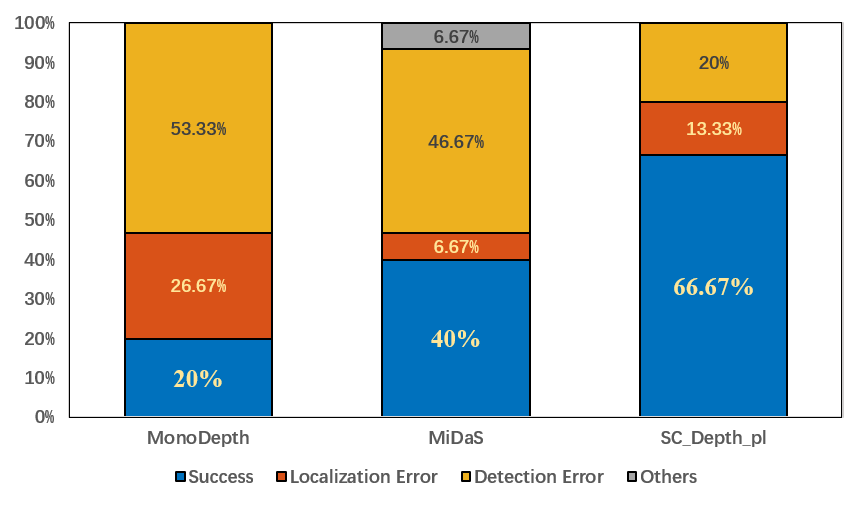Our work has been accepted by ICAUS2022. Please check our experimental video here.
The repository includes the source code of the autonomous obstacle avoidance system proposed in our paper. We have developed an autonomous obstacle avoidance system for the micro-aerial vehicle (MAV) based on monocular depth estimation (MDE).
The 6-DoF pose estimation and trajectory planning are implemented with ORB-SLAM2 and Fast-Planner, respectively. Several monocular depth estimation algorithms with distinctive characteristics are applied and evaluated. The experimental results show that both depth accuracy and scale consistency play significant roles in real-world micro-aerial vehicle navigation.
The program includes 5 ROS packages (1, 3, 4, 5, 6) and a ROS package collection (2). The labels of items show the running order. Please click the workspace to learn more specific details on setup, compilation and operation.
We have tested all the packages on ROS Melodic for Ubuntu 18.04. The CPU of the laptop is Intel i7-10875H and the GPU is NVIDIA GeForce RTX 2070 Super Max-Q. The GPU driver version is 450.51.06 and the CUDA version is 11.0. We recommend you to manage the MDE workspaces with Anaconda Virtual Enviroment.
If you publish work based on, or using, this code, we would appreciate the citation to the following:
@inproceedings{yp22icaus,
author = {Yongzhou Pan and Jingjing Wang and Fengnan Chen and Zheng Lin and Siyao Zhang and Tao Yang},
title = {How Does Monocular Depth Estimation Work for MAV Navigation in The Real World?},
booktitle = {Proceedings of the 2022 International Conference on Autonomous Unmanned Systems (ICAUS)},
month = {September},
year = {2022}
}
The README is an initial version and we will improve it with more details in the coming months.

